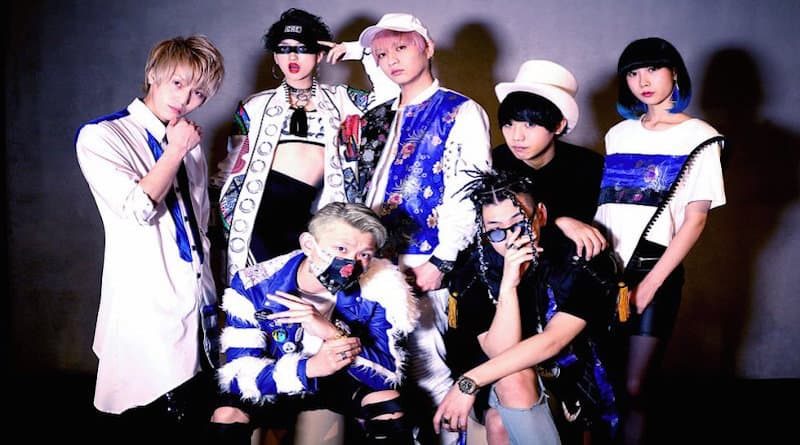Hiroshima Fusion Unite: In Memoriam
Once upon a time, there was an indie hip-hop group called Hiroshima Fusion Unite, and boy did it have potential.
Its beats were catchy, its raps had zingers, and its members seemed committed to doing things their own way while proudly repping their roots. But you know how young people are these days — sometimes they inexplicably decide to largely abandon music and become YouTube “creators.”
In hindsight, the warning signs were clear. HFU’s channel was increasingly filled with fluff videos of the members being silly, as opposed to music videos or clips from concerts. Perhaps more importantly, HFU’s most popular songs, at least hitcount-wise, were actually covers of Japanese pop songs, with varying amounts of original rap thrown in. Nishino Kana’s cutesy and square “Torisetsu,” rewritten from a man’s perspective, was probably the group’s big break.
If one were trying to be successful, it might be understandable for one to follow the hits down a more mainstream road. However, does one really need to follow the hits all the way to making Minecraft videos?
As I mentioned above, what really stings about HFU’s devolution is its wasted potential. So instead of using a whole article to complain, I’d like to take this opportunity to look back on the good ol’ days, i.e. Hiroshima Fusion Unite’s first and so far only full-length album, Wakewakaland [Amazon Jp]. Even my jilted heart still believes it’s worth a listen.
Wakewakaland is bookended by a fake radio show, wherein HFU’s seven members accidentally spend all their air time discussing a listener question: “I’ve been going out with a guy for just three days, but he keeps asking to bone. What do you think?” The first actual song of the album, “Sabi de Dainashi no Love Soul,” could be from said boyfriend’s perspective, and it is as frenetic as it is hilarious. From lines like “I’m the only one in the world who can love you like this after just a few seconds” to the time the chorus is sobbed rather than sung, the track is a wild ride from start to finish.
It’s a gutsy way to open an album, but the gamble pays off because, while often silly, the feelings and scenarios described in Wakewakaland are always grounded in reality. The group’s website says HFU’s “characteristics include uniquely realistic lyrics, as if the whole range of human emotion had been vacuum sealed into a song. Incredibly heartrending, incredibly passionate, and with wordplay that holds nothing back, HFU’s songs arouse both shock and sympathy.” Although admitting the relatability of “Sabi de Dainashi no Love Soul” probably says more about the listener’s unfortunate experiences than it does about HFU, I maintain that HFU’s ability to honestly portray the wakamono psyche was their best quality.
The album’s second song, “Noru or Soru” is the group’s real self-introduction, a quintessentially hip-hop brash jikoshokai. “I’ve fallen in love with singing my own praises / And there’s no time but now” is the order of the day. However, after that the middle of the album spends a bit of time in lighter, more J-pop-influenced territory.
The best song of the album, the one that tricked me into loving Hiroshima Fusion Unite in the first place, is “Mottainai.” The track perfectly combines bravado, taiko-influenced backing tracks, a sample of Usher’s “Yeah,” and some only-in-Hiroshima lines. “We’re not junk food / We’re a product of Hiroshima’s miracle” and “This is our cry / And reason for existing” stunned me when I finally, you know, figured out the Japanese lyrics. Awkwardly, “Mottainai” also features lines like “Originality is our aesthetic” and “Art versus money / Practical problems / Which is more important? / Well, which one is it?” My question exactly.
Hiroshima Fusion Unite again produces quality on the two tracks following “Mottainai.” “Douaisou” is a gentler, inspiring look at the hip-hop life, one that praises day in, day out hard work and perseverance rather than flashiness. The next song, “Chiisana Koeyo Ookiku Todoke,” is about remembering the bombing of Hiroshima and shows HFU’s range. We’ve come a long way from “Love Soul.”
The album’s final track, “#Nikkori Smile Naishin Fuck You” returns to previous high levels of energy and silliness. The album version of the track chronicles instances of mildly unreasonable female behavior that I assume HFU’s members have suffered. However, the group rewrote the verses for an updated music video, and the new version of the song lampoons workplace hypocrisy and bullying, along with other lighter subjects. In keeping with HFU’s characteristic honesty, “Naishin Fuck You” gives voice to what we all think from time to time: “It’s a pain pretending to be an adult!”
Admittedly, Wakewakaland was released in the relatively recent 2015. Hell, I’ve been waiting for an album from my favorite rapper since 2013 (but at least she’s not recording herself playing Minecraft). Point being, Hiroshima Fusion Unite could still release a dazzling, original second album — and if that day comes, I’ll gladly eat my words. But the signs don’t give me cause to hope, so for now please join me in a moment of silence for Hiroshima Fusion Unite. It was fun while it lasted.


